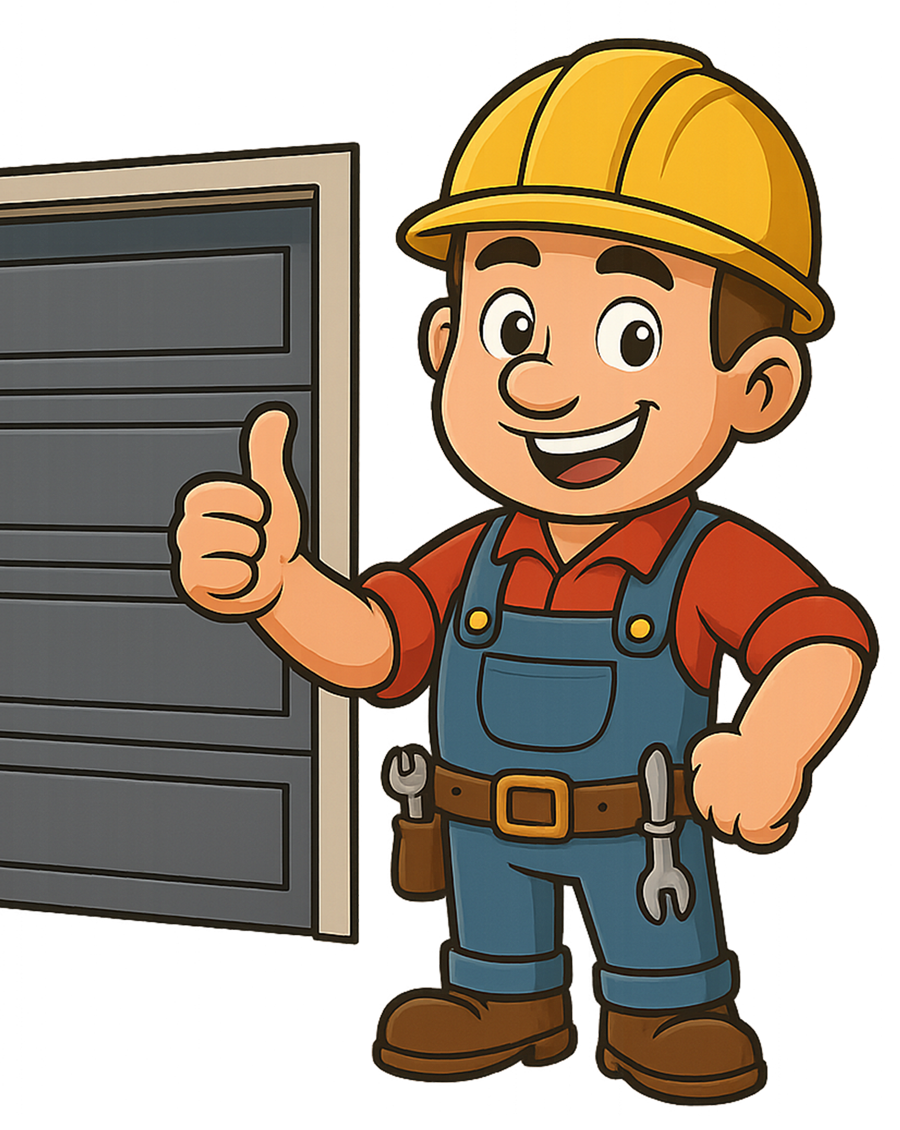Garage Door Drum Replacement
Garage door drums are an essential part of the door’s cable and spring system, helping to wind and unwind the cables smoothly as the door opens and closes. When a drum becomes cracked, warped, or worn out, it can cause the door to lift unevenly, put excess strain on other components, or even lead to a sudden failure that risks injury or property damage. Because these drums are under high tension and connected to heavy parts like the torsion spring, repairing or replacing them is not a safe DIY job.
Hiring a professional garage door repair company ensures the job is done safely and correctly. Technicians have the specialized tools and training to handle drum replacements with precision, and they can also inspect the entire system to identify any hidden issues, like frayed cables or misaligned tracks. By trusting a trained expert, you not only protect yourself and your property but also extend the life of your garage door system and improve its overall performance.
GARAGE DOOR DRUM REPLACEMENT
Broken or worn garage door drums are more than just an inconvenience—they’re a safety hazard that should only be handled by a trained professional. These drums are responsible for winding the cables that lift and lower your door, and because they operate under high tension, improper handling can result in serious injury or further damage to your door system. A professional technician has the experience and equipment to replace faulty drums safely and ensure your garage door operates smoothly and reliably.
To help you better understand the role of garage door drums and what to expect during a repair, we’ve created a section of frequently asked questions. Here, you’ll find clear, helpful answers about common signs of drum failure, what causes them to wear out, and how professional repair works—so you can make informed decisions with confidence.
Garage door drums are round, grooved wheels located at the ends of the torsion spring shaft above the door. As the garage door opens and closes, the cables wind and unwind around these drums, working in tandem with the torsion springs to evenly lift and lower the door. The drums help keep the door balanced and aligned, making them a vital part of the counterbalance system.
If the drums become worn, cracked, or misaligned, they can cause the cables to slip or become tangled. This not only affects how smoothly the door operates but can also pose a safety risk. Without properly functioning drums, your door can jerk, tilt, or even fall unexpectedly—so it’s important to address any issues right away.
One of the most common signs of a drum problem is a door that opens unevenly or appears off-balance. You might also notice a grinding or rubbing noise as the door moves, or cables that look loose, frayed, or jump out of their grooves. In some cases, the door may get stuck halfway or not open at all.
A visual inspection can sometimes reveal cracks or chips in the drum, but not all issues are easily visible. Since the drums work in sync with the cables and springs, it’s best to call a professional to diagnose the problem. A trained technician can confirm whether the drum is the issue and recommend a safe and effective repair.
Garage door drums wear out over time from repeated use. Every time your door opens or closes, the cables wind around the drums under high tension. This constant pressure, along with friction from the cables, gradually wears down the grooves and the drum surface. If the grooves become too shallow or develop cracks, the cables can slip or bind, leading to malfunction.
Other contributing factors include rust from moisture, debris buildup in the track system, and improper cable tension. In some cases, using the wrong type of drum for your door’s weight and size can also lead to premature failure. That’s why it’s essential to have a professional install and inspect your system to ensure everything is properly matched and maintained.
Replacing a garage door drum is not a safe DIY project. The drum is part of the torsion system, which stores a great deal of energy. Attempting to loosen or remove the drum without the proper tools or knowledge can release that tension suddenly, resulting in serious injury or even damage to the door.
Professional garage door technicians are trained to safely release spring tension, remove faulty drums, and install new ones correctly. They’ll also inspect other connected components, such as cables, bearings, and springs, to make sure everything is in good working condition. Hiring a pro ensures that the repair is done safely and that your garage door continues to operate smoothly.
Garage door drums can last anywhere from 10 to 15 years, depending on the frequency of use and the quality of the materials. Higher-cycle doors, like those used in commercial settings or busy households, may see faster wear and tear. Drums that are exposed to extreme weather conditions, moisture, or salt (like in coastal areas) may also corrode or fail sooner.
Routine maintenance can extend the life of your drums. Keeping cables properly tensioned, lubricating moving parts, and having your door professionally inspected annually can all help prevent premature wear. If your system is older or the door is starting to operate noisily or unevenly, it may be time to check the condition of the drums as part of a full-system tune-up.
If you notice unusual movement, strange noises, or visible cable issues, stop using your garage door immediately and contact a professional repair service. Operating the door with a damaged drum can cause cables to snap or the door to come off track, increasing the chance of injury or property damage.
A technician will inspect your system to confirm whether the drums are the issue, and if so, safely replace them with the correct parts for your door type. They’ll also check the overall health of your cables, torsion springs, and bearings to ensure everything is aligned and balanced. Acting quickly can help prevent bigger, more expensive repairs down the road.




